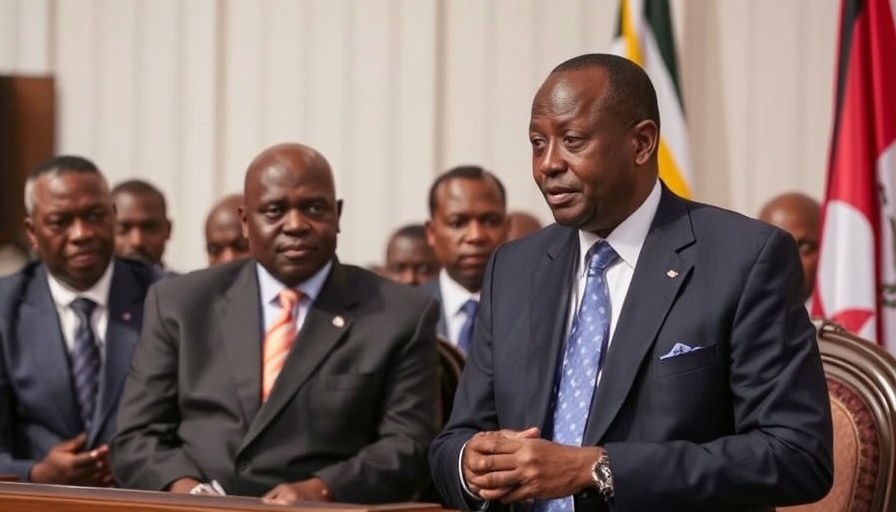
A Bumpy Mediation Journey: Raila Odinga’s Role in South Sudan
The mediation efforts spearheaded by former Kenyan Prime Minister Raila Odinga in the ongoing South Sudan conflict have encountered significant challenges. Appointed as Special Envoy to South Sudan by President William Ruto, Odinga sought to improve relations and foster dialogue amidst a delicate political climate. However, his recent trip to Juba stirred controversy, highlighting the complexities of foreign diplomacy in the region.
Disentangling the Dispute: What Went Wrong?
Upon returning to Kenya, Odinga claimed he was impeded from engaging key figures, namely First Vice-President Riek Machar and his wife, Angelina Teny, suggesting they were under house arrest. In contrast, South Sudanese authorities denied this assertion, leading to a public spat that has marred the diplomatic mission. The South Sudan government has formally rejected several claims made in Odinga's report, including allegations that a meeting was orchestrated between him and Ugandan President Yoweri Museveni at the behest of President Salva Kiir.
Tensions as the African Union Steps In
As diplomatic tensions heighten, the African Union's (AU) recent decision to dispatch a high-level delegation to South Sudan underscores the urgency of mediating the fractured peace in the nation. The AU Panel of the Wise aims to engage multiple leaders to foster dialogue and de-escalate tensions stemming from ongoing conflicts, a testament to the intricate geopolitical landscape of the region.
Implications for Regional Stability and Global Interests
Juba's discontent with Odinga's mission raises significant questions about the efficacy of external mediation efforts in places that require nuanced understanding of local politics. For business leaders and policymakers, the outcomes of this mediation could influence economic prospects and stability in the region, which directly ties into the broader narrative of Africa's role within the global economy. As diplomatic relations evolve, stakeholders must remain cognizant of the impacts on trade, governance, and socio-economic development throughout Africa.
Moving Forward: A Call for Constructive Dialogue
With regional stability at stake, it is imperative for all parties involved to re-evaluate their diplomatic strategies and embrace constructive dialogue. The recent conflicts underscore the need for transparency and cooperative engagement, as even small missteps can escalate into larger geopolitical challenges. Stakeholders in the African economy and governance must advocate for solutions that promote peace and collaboration among nations, ensuring a sustainable and prosperous future for South Sudan and its neighbors.
 Add Row
Add Row  Add
Add 


Write A Comment